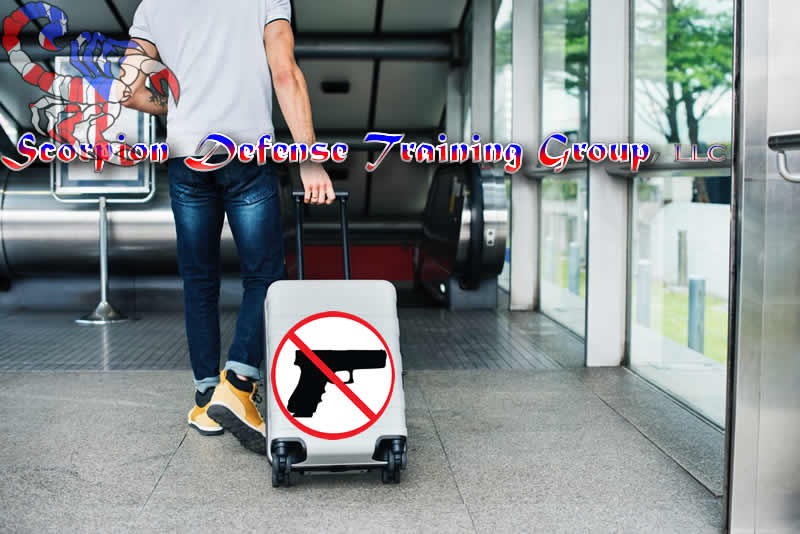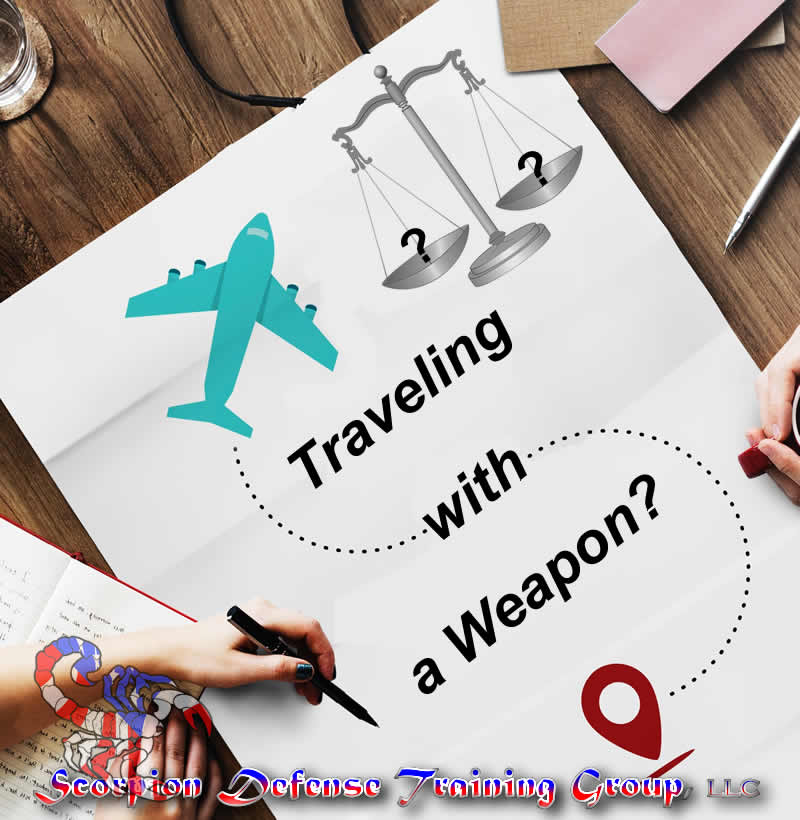In Part 3 of our article on “Traveling with a Firearm”. we’d like you to consider your options when arriving at your destination hotel or any public abode. How will you keep your weapon(s) safe when they are not on your person?
Many hotels can provide a safe that may hold a weapon, however, these safes are never 100% secure. One of the most obvious security faux pas is neglect setting a strong passcode. Never set an easy-to-guess pin code (such as 1234 or 0000).
Hotel staff members often have methods to access a room/safe without requiring a key code. Take note of your surroundings …does your porter pay too much attention to your firearms case, or does the staff linger around while you are using the safe? Your primary concern will be keeping your weapon secure when it is not on your person.
But there may certainly be times when you may not be able to keep your weapon with you. You should plan ahead for those times and take every precaution to prevent unauthorized persons from being able to access your firearm.
One method: Use handcuffs to secure the firearms case to the plumbing under the sink, or use cable ties around the locks, securing it to another strong point in the room. Take a look at the box your firearm came in; some manufacturers include pre-drilled holes into their cases for the specific purpose of allowing padlocks to be used to better secure the case.
The downside: Handcuffs or cable ties may be a “tell-tale sign” that you are trying to protect something valuable and someone with malicious intentions may pick up on that, however taking no action to protect your weapon is unacceptable and may also be unlawful in some instances.
Many hotels can provide a safe that may hold a weapon, however, these safes are never 100% secure. One of the most obvious security faux pas is neglect setting a strong passcode. Never set an easy-to-guess pin code (such as 1234 or 0000).
Hotel staff members often have methods to access a room/safe without requiring a key code. Take note of your surroundings …does your porter pay too much attention to your firearms case, or does the staff linger around while you are using the safe? Your primary concern will be keeping your weapon secure when it is not on your person.
But there may certainly be times when you may not be able to keep your weapon with you. You should plan ahead for those times and take every precaution to prevent unauthorized persons from being able to access your firearm.
One method: Use handcuffs to secure the firearms case to the plumbing under the sink, or use cable ties around the locks, securing it to another strong point in the room. Take a look at the box your firearm came in; some manufacturers include pre-drilled holes into their cases for the specific purpose of allowing padlocks to be used to better secure the case.
The downside: Handcuffs or cable ties may be a “tell-tale sign” that you are trying to protect something valuable and someone with malicious intentions may pick up on that, however taking no action to protect your weapon is unacceptable and may also be unlawful in some instances.
The best option to keep your weapon safe, inaccessible and with your peace of mind, would be to acquire a small safe that you can travel with and secure it to a strong point. This safe should have a code known only to you.
Finally, if you want to be the most secure, remove a small part of the firearm that would render it unusable. For an autoloader this would be the slide stop, on a revolver it would be the yoke screw. Small parts like this should be kept in a separate location or suitcase. A toiletry bag can be a good place to keep these small parts. .
As we draw an end to this series, it does not mean an end to the ways we can advise you and your family on firearm safety and ways to make your travel less hectic. If you choose to travel with your firearm and want to be as informed as possible, we’d be please….no actually we’d be thrilled to have a conversation with you. And if you’ve had any interesting experiences traveling with your legal firearm or other legal weapons we invite you to share your story.
Until next time, be aware of your surroundings, We addressed situational awareness earlier on, and using the methods we shared with you will help you defend yourself in distant destinations just as in your local environment. Be safe, travel smart, learn what’s legal. and connect with SDTG
Ref: TSA firearm guidelines: https://www.tsa.gov/travel/transporting-firearms-and-ammunition.
Finally, if you want to be the most secure, remove a small part of the firearm that would render it unusable. For an autoloader this would be the slide stop, on a revolver it would be the yoke screw. Small parts like this should be kept in a separate location or suitcase. A toiletry bag can be a good place to keep these small parts. .
As we draw an end to this series, it does not mean an end to the ways we can advise you and your family on firearm safety and ways to make your travel less hectic. If you choose to travel with your firearm and want to be as informed as possible, we’d be please….no actually we’d be thrilled to have a conversation with you. And if you’ve had any interesting experiences traveling with your legal firearm or other legal weapons we invite you to share your story.
Until next time, be aware of your surroundings, We addressed situational awareness earlier on, and using the methods we shared with you will help you defend yourself in distant destinations just as in your local environment. Be safe, travel smart, learn what’s legal. and connect with SDTG
Ref: TSA firearm guidelines: https://www.tsa.gov/travel/transporting-firearms-and-ammunition.



 RSS Feed
RSS Feed


